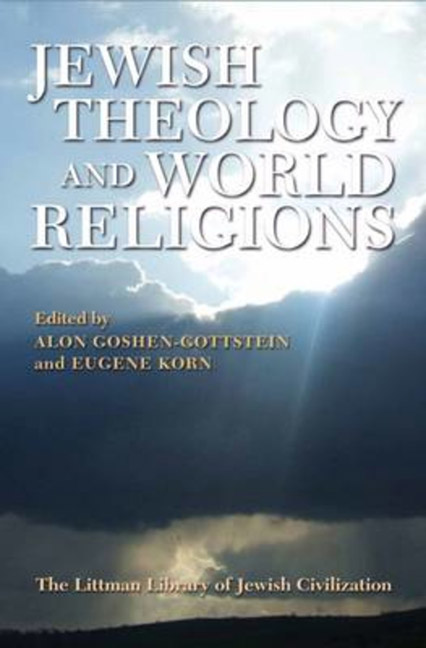Book contents
- Frontmatter
- Dedication
- Preface
- Contents
- Note on Transliteration
- Towards a Jewish Theology of World Religions: Framing the Issues
- PART I PHILOSOPHICAL PERSPECTIVES ON JEWISH PLURALISM
- 1 Jewish Views of World Religions: Four Models
- 2 Justifying Interreligious Pluralism
- 3 Pluralism out of the Sources of Judaism: The Quest for Religious Pluralism without Relativism
- 4 Respectful Disagreement: A Response to Raphael Jospe
- PART II JUDAISM AND THE OTHER
- PART III JUDAISM AND WORLD RELIGIONS
- Concluding Reflections
- Notes on the Contributors
- Index
4 - Respectful Disagreement: A Response to Raphael Jospe
from PART I - PHILOSOPHICAL PERSPECTIVES ON JEWISH PLURALISM
- Frontmatter
- Dedication
- Preface
- Contents
- Note on Transliteration
- Towards a Jewish Theology of World Religions: Framing the Issues
- PART I PHILOSOPHICAL PERSPECTIVES ON JEWISH PLURALISM
- 1 Jewish Views of World Religions: Four Models
- 2 Justifying Interreligious Pluralism
- 3 Pluralism out of the Sources of Judaism: The Quest for Religious Pluralism without Relativism
- 4 Respectful Disagreement: A Response to Raphael Jospe
- PART II JUDAISM AND THE OTHER
- PART III JUDAISM AND WORLD RELIGIONS
- Concluding Reflections
- Notes on the Contributors
- Index
Summary
OUR FRIEND and colleague Raphael Jospe has presented a moving case in support of a non-relativistic religious pluralism. He seeks to ground that admirable stance in the sources of Judaism. We are not convinced by his arguments and we will show why this is the case.
It is important to be clear on matters of terminology. By ‘relativism’ we understand (following the American Heritage Dictionary) the view that holds that ‘conceptions of truth and moral values are not absolute but are relative to the persons or groups holding them’. By ‘religious pluralism’ we understand the normative (as opposed to simply descriptive) claim that different religions make equally correct truth-claims, that they are equally acceptable. Assuming that he accepts these definitions, it is obvious that it would be hard for Jospe to defend religious pluralism without also adopting the relativistic stance that no one religion teaches truth—that in terms of truth and falsity there is no reason to prefer Judaism over Islam or Christianity, or over African, Native American, or South-East Asian religions as well. Jospe's thesis is that ‘the Jewish concept of the chosen people is not externally directed, implying that Jews in fact are better than other people; rather, chosenness is internally directed, challenging Jews to become better people’. We agree with this statement, but it also reflects much of what separates us and why we think that his argument either proves nothing that anyone would disagree with or must fail. He bases his discussion on the centrality of the Jewish people, moving from the people to their Torah. In a very real sense this move makes his argument for him. It is no challenge to show that biblical and many rabbinic expositions of the doctrine of election do not imply that Jews are in any inherent fashion superior to non-Jews. After all, God created all humanity in the divine image and can hardly be uninterested in the fate and spiritual and physical wellbeing of non-Jews. Since, on many readings (such as those of Isaiah and Maimonides3) distinctions between Jew and non-Jew will melt away in the messianic era, the notion of election poses a fairly small challenge to Jospe's pluralism.
- Type
- Chapter
- Information
- Jewish Theology and World Religions , pp. 123 - 134Publisher: Liverpool University PressPrint publication year: 2012

